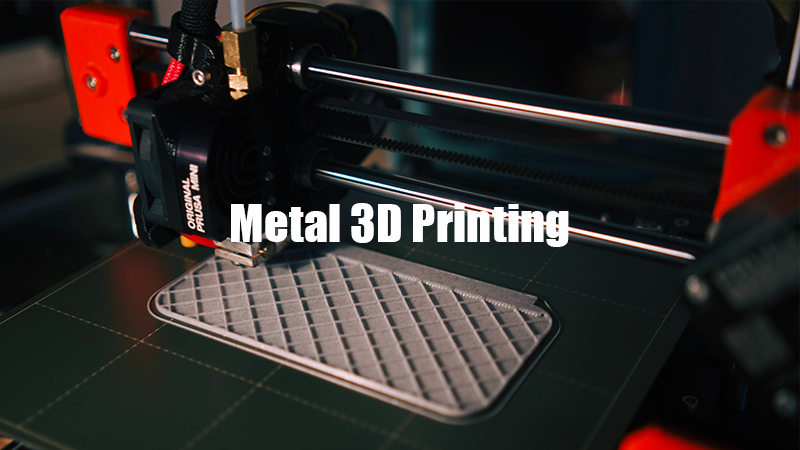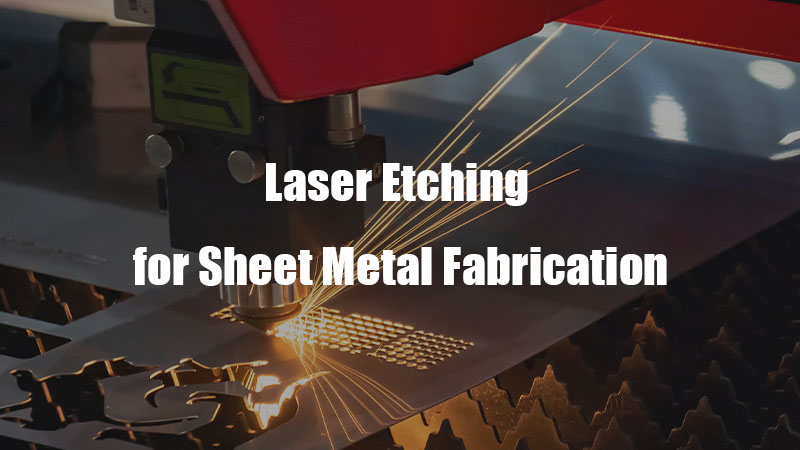For manufacturing corrosion-free industrial appliances, choose the right stainless steel.
Read this guide to learn about J4 stainless steel, its properties and its usage in multiple fields.
Let’s dive right in:
What is J4 Stainless Steel?
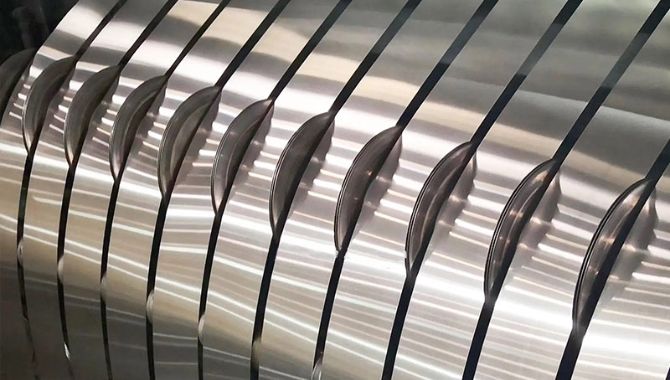
This stainless steel is also known as ferritic stainless steel. Chromium and manganese are its main components. A small amount of other metals, like nickel and copper are also present. Some alloying elements are also present in this stainless steel’s grade. These elements give it an austenitic structure when annealed.
In relation to its origin from Japan, J4 is an abbreviation of “Japanese 4th generation”. The basic aim of this grade creation was to rectify the issues present in earlier renditions. Later on, it gained popularity throughout the world.
This ferritic grade is economically favorable because of the lower-cost nitrogen and manganese content. Because of its chemical composition, this steel offers exceptional properties like high corrosion resistance and good mechanical strength. Therefore, its primary use is in building construction and machinery manufacturing.
Composition of J4 Stainless Steel
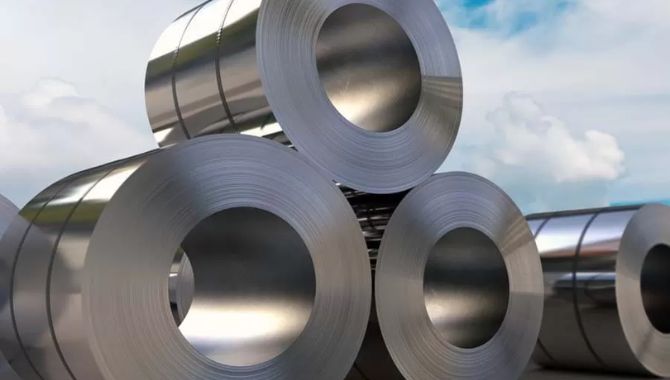
| J4 Components and Value in Percentage(%) | |
| Carbon | 0.10 |
| Cupper | 1.5 to 2.0 |
| Manganese | 8.5 to 10 |
| Sulfur | 0.010 |
| Phosphorus | 0.080 |
| Silicon | 0.75 |
| Chromium | 15 to 16 |
| Nickel | 1.0 to 2.0 |
Mechanical Properties of J4 Stainless Steel
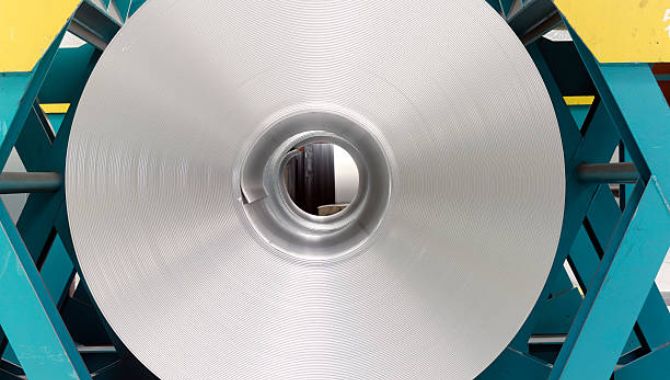
- The tensile strength of this ferritic stainless steel is 620 MPa.
- The yield strength of J4 stainless steel is 325 min per 0.2% offset(KSI).
- J4 stainless steel has 100 max Rockwell B hardness.
- The elongation (2 Gauge length) of this stainless steel is 40 min.
J4 Grade Stainless Steel’s Features
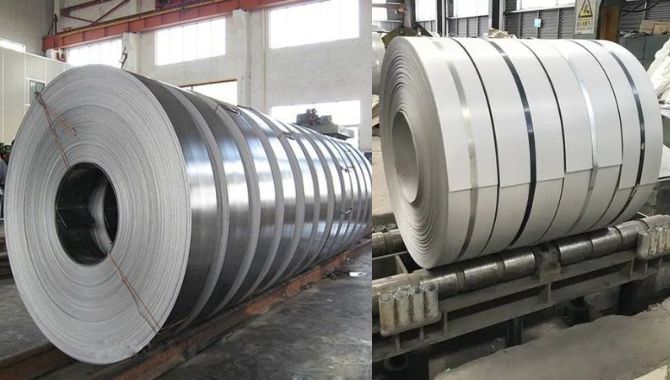
J4 stainless steel is used in multiple industries for various purposes. All its usage is interlinked with its exceptional properties, as it has a 7.8 g/cm 3 density and a melting point around 1400–1425 °C. So, before adopting a J4 grade stainless steel for any industrial purpose, you should be aware of its features. Let’s take a look at them:
High Strength
If you are seeking a hard stainless steel grade, then J4 is best for others. As this grade has the perfect combination of strength and resistance against stress, you can choose it for building construction.
Its low carbon content plays a crucial role in boosting J4 stainless steel’s strength. Besides its strength, this stainless steel has resistance when bent or stretched because of high durability. This material’s resistance makes it unique to use for various applications.
High Flexibility
J4 ferritic stainless steel has exceptional ductility. That’s why, when they are stressed under high pressure, they bend down without any fractures. You can use J4 stainless steel to form various shapes of the material, this comes due to the toughness and durability of J4 stainless steel. This property of J4 stainless steel makes them ideal for welding purposes.
J4 stainless steel usage has increased in multiple manufacturing industries. Where:
- Shaping and welding of materials occur because of the flexibility of J4 stainless steel.
- Longevity and endurance happen due to the ductility of the J4 material.
- Deformation and cracks are prevented by the resilience of the material.
Corrosion Resistance
You can use J4 stainless steel to form equipment that is ideally, this is possible due to the material’s corrosion resistance. Corrosion resistance is because of its chromium content. The more chromium a material has, the less it will corrode. Because chromium can create a barrier layer on the product and stops it from corroding.
J4 stainless steel is corrosion resistant, in that it can resist pitting and crevice corrosion. These are common corrosion types, so if your problem relates to these types of localized corrosion, you can opt for J4 stainless steel for your high performance tasks.
Magnetism
Among other ferritic stainless steels, J4 exhibits exceptional properties. Corrosion resistance and magnetism come among them. J4 stainless steel has the ability to undergo magnetism, even it can retain magnetism after being cut off. All this is because of its ferromagnetic characteristics.
This property enables J4 stainless steel to be identified and sorted easily. That is why you can detect J4 stainless steel by applying the magnetic technique. As discussed earlier, this stainless steel is made of less iron but more chromium, hence its ferromagnetic material, and is more magnetic than other types of stainless steel.
Malleability
J4 stainless steel can bear high stress without fracture, so it could be molded into any shape or size. Therefore, these stainless steels are used in the manufacturing of industrial appliances as well as domestic equipment. Malleability is a property that sets this stainless steel apart from other types of stainless steel.
Cost-Efficiency
As we discussed earlier, these unique characteristics make them able to be used for various applications, like the manufacture of different industrial products. This ferritic stainless steel is cost effective, therefore used on a large scale, where the cost factor is paramount.
What is the J4 Stainless Steel Price?
J4 stainless steels is the premium quality stainless steel among other J series variations. This stainless steel is very costly among others because of the copper content in it. But the price is influenced by market condition, specific grade, dimension and volume of the material.
Applications of J4 Stainless Steel
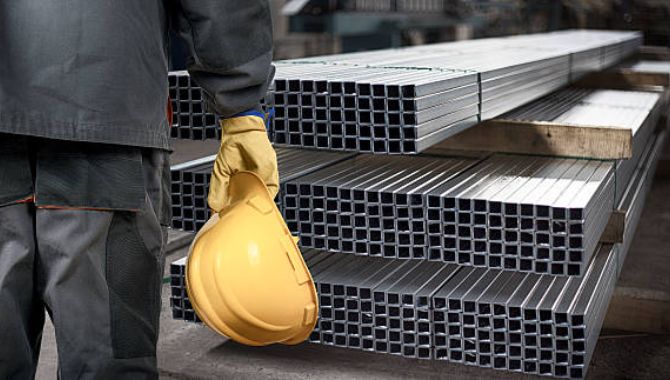
J4 stainless steel has vast applications in different fields, all thanks to its properties. Here are some common applications:
Automotive Industry: J4 stainless steel perform various tasks in the automotive industry. Manufacturers used this ferritic material to craft exhaust systems and mufflers. Some other parts that are exposed to corrosion are made of this material. Strength, corrosion resistance, and endurance like properties are involved in these applications.
Construction Industry: J4 stainless steel is considered the best material to be used in construction purposes. Some properties that make them suitable for manufacturing applications include an extended lifespan and corrosion resistance. To make suspension bridges and skyscrapers this ferritic stainless steel is used.
Chemical Industry: The chemical industry’s manufacturers use this ferritic material because of its corrosion resistance. There, J4 stainless steel is used to craft chemical transferring tanks, reactors and other special equipment.
Manufacturing Field: Besides chemical and construction industries, many manufacturing industries use J4 stainless steel. J4 stainless steel is ideal to use in those organizations where home equipment and pressure vessels types appliances are crafted. Many other systems use it where endurance, purity, or robustness matter. This ferritic material is best for manufacturing durable tools.
Difference between J4 Stainless Steel and Other Steel Grades
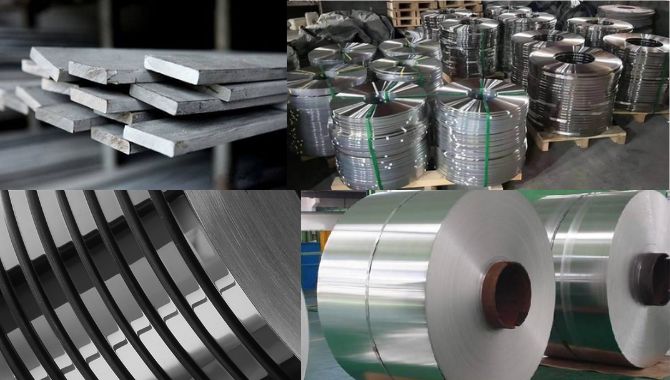
J4 stainless steel is included in the 201 steel category, which has more J1, J2, J3, and J5 grades of stainless steel. These all differentiate from each other based on their chemical compositions and are thus used in different applications. Here is a brief comparison of all grades.
| Comparison of J1, J2, J3, J4, and J5 Chemical Compositions | |||||
| J1 | J2 | J3 | J4 | J5 | |
| C% | 0.104 | 0.128 | 0.127 | 0.06 | 0.135 |
| Ni% | 1.21 | 1.37 | 1.3 | 1.27 | 1.451 |
| Cr% | 13.92 | 13.29 | 14.5 | 14.86 | 13.269 |
| Mn% | 10.07 | 9.57 | 9.05 | 9.33 | 10.727 |
| Cu% | 0.81 | 0.33 | 0.59 | 1.57 | 0.07 |
| Si% | 0.41 | 0.49 | 0.41 | 0.39 | 0.584 |
| P% | 0.036 | 0.045 | 0.039 | 0.036 | 0.043 |
| S% | 0.003 | 0.001 | 0.002 | 0.002 | 0.002 |
| N% | 0.155 | 0.177 | 0.149 | ||
J1’s carbon content is slightly higher than J4, and copper is less, therefore as good performance as J4. Hence, these stainless steel are used for light drawing, or angle type products such as sink, washroom products, etc.
J3 stainless is suitable for decorative pipes. J2 and J5 are also good for manufacturing decorative pipes because of hardness above 96°. In plate manufacturing, the surface finishes like grinding, polishing comes outclassed due to hardness.
J4 is high class in the J series of stainless steel, it’s used even for small applications like kettle, vacuum cup or door hinge production. It is suitable to manufacture small drawing products.
Conclusion
With knowledge of the properties of J4 stainless steel, you can perfectly match it for your purpose. This guide will help you understand that J4’s best usage is against corrosion.
For J4 stainless steel intakes, contact us now.



